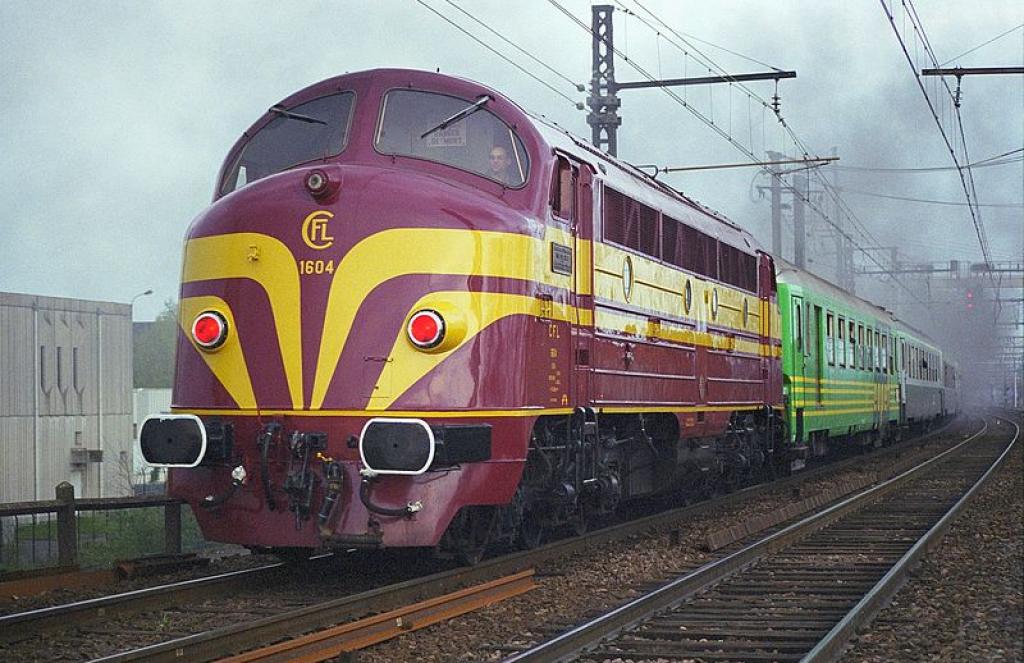Thessaloniki gets ready for its metro launch in November
The underground rapid transit lines have been under construction for almost two decades due to various project delays
 TheMayor.EU logo
TheMayor.EU logo 
The ride from Luxembourg to Brussels takes three hours. For comparison, it only takes two hours to Paris, Source: Didier Duforest on Wikipedia, CC BY-SA 3.0
The train ride between the two cities currently takes three hours – way longer than it used to back in the 1970s
The European Commission has pledged its financial support for the modernisation of the train line between Luxembоurg and Brussels, bringing down travel times from three hours to just two, as announced by the Grand Duchy's Transport Minister Francois Bausch.
The project was launched by the two neighbouring countries back in 2007 with estimated costs of around 750 million euros, and partial funding by the European Union. Luxembourg completed their part of the track in 2018 at a cost of 100 million, however, the Belgian side will not be done until at least 2028.
The European Commission pledged its financial support to speed up the construction process between the two European capitals, with Commission Vice-President Frans Timmermans commenting that this could be an example of infrastructure development policy at the “wider European level”.
This comes as a response to events in March of this year when François Bausch and his Belgian counterpart George Gilkinet wrote a letter to the European Commission requesting additional funds amid Belgian budgetary restraints.
After a working group analysed the situation, they determined that funding from the pandemic recovery plan can be used to co-finance the project. Plans also foresee an extension of the Brussels-Luxembourg line to Strasbourg, the EU's other hub.
The €750 billion pandemic recovery fund favours environmentally-friendly infrastructure projects so that it can reduce the bloc's greenhouse emissions. The Luxembourg-Brussels line is perfect for the fund because currently frustrated passengers opt to do the journey by car.
The three-hour train journey between Brussels and Luxembourg winds through the hills of the Ardennes with frequent stops along the way and has been the source of despair for commuters and EU officials for decades.
While in the 1970s one could reach Brussels in two hours and 15 minutes, the journey currently takes over three hours, prompting many to travel by car instead.
In comparison, currently, the train ride from Luxembourg to Paris, a much greater distance takes just over two hours and often hits speeds of more than 300 km/h.
If you want to keep up with how European cities and regions are changing, follow us on Facebook, Twitter and Instagram.

The underground rapid transit lines have been under construction for almost two decades due to various project delays

Now you can get your wine in Talence by paying directly in Bitcoin

That’s because the state has to spend money on updating the railway infrastructure rather than subsidizing the cost of the popular pass

Rethinking renewable energy sources for the urban landscape

The examples, compiled by Beyond Fossil Fuels, can inform and inspire communities and entrepreneurs that still feel trepidation at the prospect of energy transition

Now you can get your wine in Talence by paying directly in Bitcoin

The 10th European Conference on Sustainable Cities and Towns (ESCT) sets the stage for stronger cooperation between the EU, national and local level to fast track Europe's transition to climate neutrality.

At least, that’s the promise made by the mayor of Paris, Anne Hidalgo

The underground rapid transit lines have been under construction for almost two decades due to various project delays

At least, that’s the promise made by the mayor of Paris, Anne Hidalgo

Hostal de Pinós is located in the geographical centre of the autonomous region

Despite its church-y name, the district has long been known as the hangout spot for the artsy crowds

Urban dwellers across the EU are having a say in making their surroundings friendlier to people and the environment.

Forests in the EU can help green the European construction industry and bolster a continent-wide push for architectural improvements.

Apply by 10 November and do your part for the transformation of European public spaces

An interview with the Mayor of a Polish city that seeks to reinvent itself

An interview with the newly elected ICLEI President and Mayor of Malmö

A conversation with the Mayor of Lisbon about the spirit and dimensions of innovation present in the Portuguese capital














